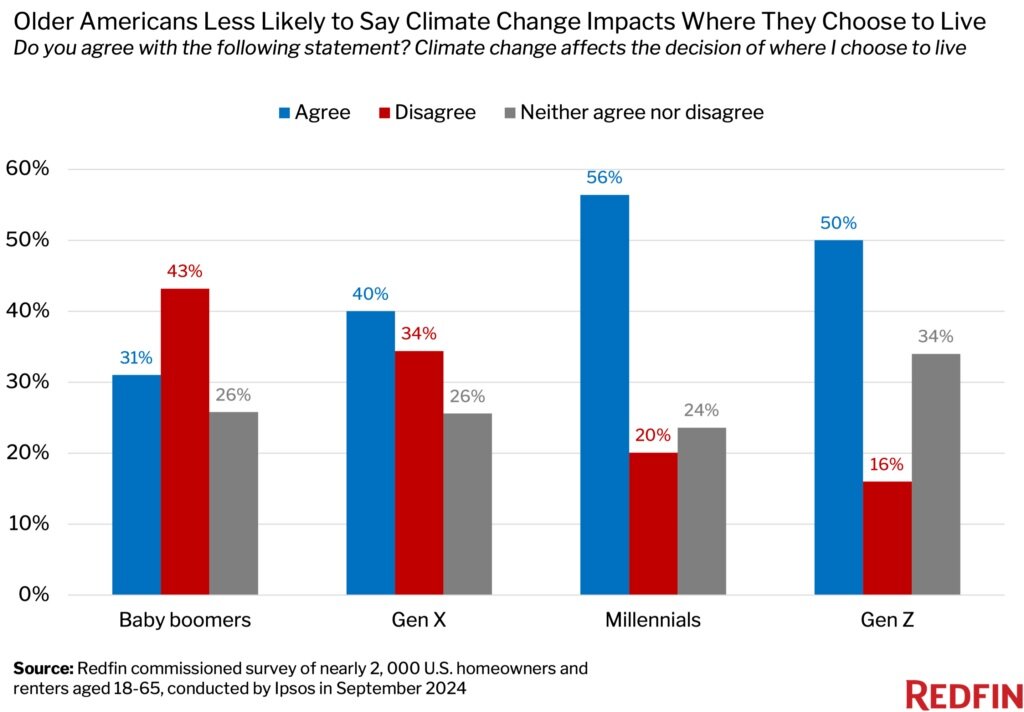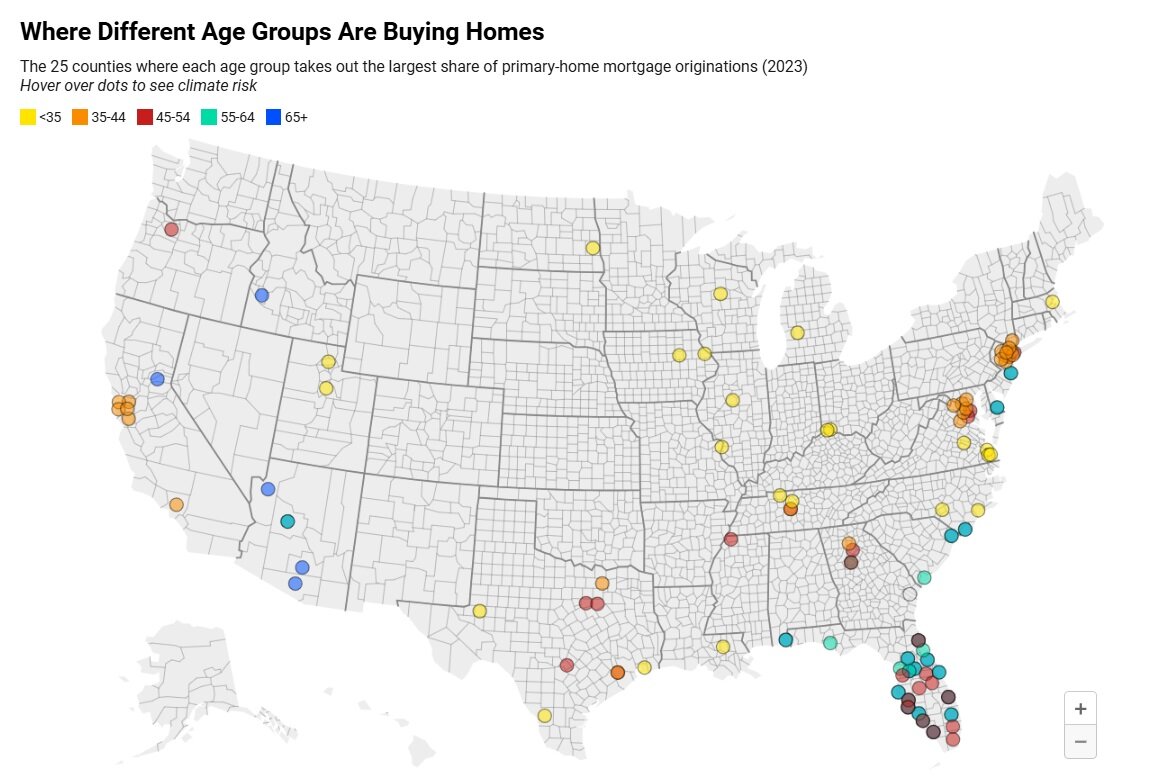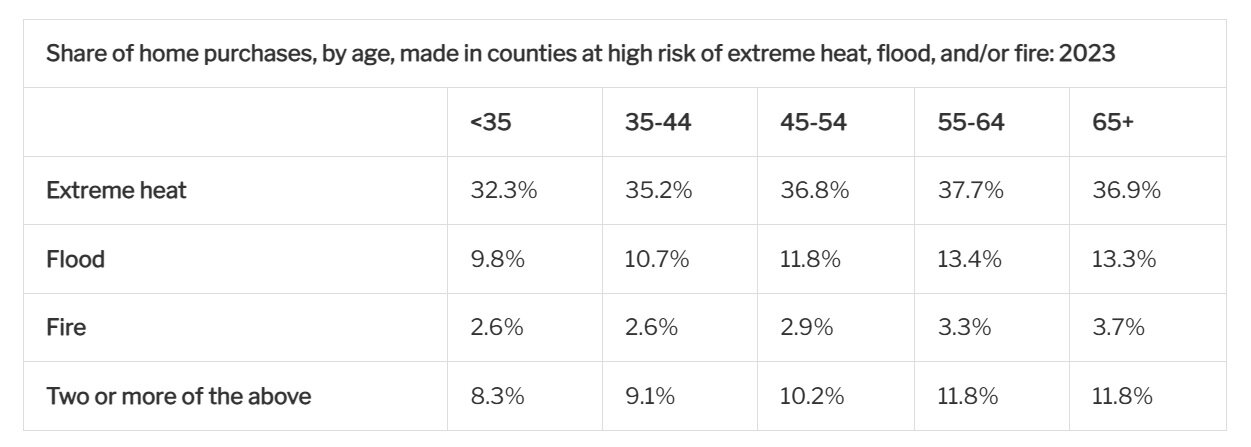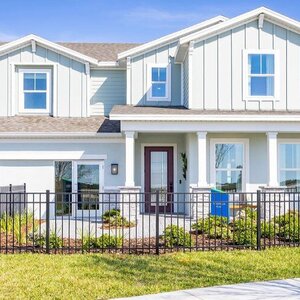Residential Real Estate News
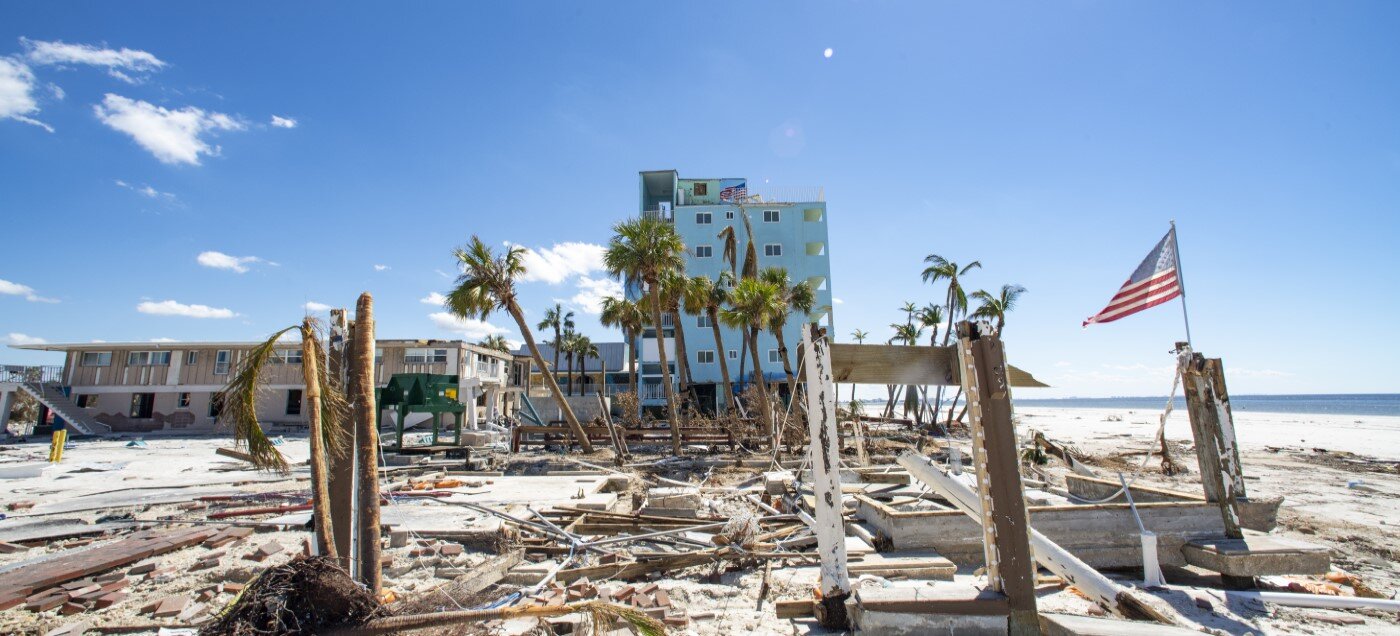
Older Americans More Likely to Buy Disaster-Prone Homes
Residential News » Sarasota Edition | By Michael Gerrity | December 17, 2024 8:15 AM ET
According to a new Redfin report, older Americans are more likely to buy homes in areas with significant climate risk compared to younger Americans. Last year, over one-third (36.9%) of home purchases by people aged 65 and older were in counties with high extreme heat risk, compared to less than one-third (32.3%) among buyers under 35.
The trend persists for flood and fire risks:
- Flood Risk: 13.3% of purchases by people 65+ were in high-risk counties, compared to 9.8% of purchases by those under 35.
- Fire Risk: 3.7% of purchases by people 65+ were in high-risk areas, compared to 2.6% among younger buyers.
"Retirees know the risks of moving to Florida but often feel the benefits outweigh the downsides," said Rafael Corrales, a Redfin Premier real estate agent in Miami. "I often suggest properties further inland to reduce flood risk, but many buyers insist, 'We came for the waterfront views.'"
Corrales noted that buyers increasingly inquire about insurance costs and sometimes request sellers share their broker's contact information if rates are favorable. This strategy gives buyers leverage in negotiations with insurers and influences their purchasing decisions.
Income level also plays a role, but older buyers across all income brackets remain more likely to move to risky areas
For counties where buyers 65+ accounted for the largest share of mortgages last year:
- 96.2% of homes face high heat risk, compared to 59.2% in counties where buyers under 35 dominate.
- 24.6% of homes face high flood risk (vs. 16% in younger-skewed counties).
- 35.7% face high fire risk (vs. 19% in younger-skewed counties).
Why Older Americans Are More Likely to Buy Homes in Risky Areas
- Desirable Retirement Hotspots Overlap with Climate Risks: Many popular retirement destinations, such as Florida and Arizona, are attractive for their sunny weather and coastal appeal. However, these areas are also prone to extreme climate risks--like hurricanes, rising sea levels, drought, and extreme heat. Florida's appeal is further boosted by its lack of retirement income taxes. Yet, rising insurance costs, HOA fees driven by worsening natural disasters, and soaring property taxes are beginning to offset that financial benefit.
- Younger Americans Prioritize Job Centers with Lower Climate Risks: Younger people often move to major urban job hubs--like Boston, Chicago, and Minneapolis--which tend to have lower climate risks than Sun Belt retirement hotspots. However, the rise of remote work and growing Sun Belt metros has begun to shift this trend.
- Generational Differences in Climate Risk Awareness: Older Americans are less likely to factor climate change into their home buying decisions. While over half of millennials (56%) and half of Gen Zers (50%) say climate change influences where they live, only 31% of baby boomers feel the same, according to a Redfin survey. This difference may stem from younger generations' longer-term exposure to climate change consequences and the topic's prominence within younger social circles.
Sign Up Free | The WPJ Weekly Newsletter
Relevant real estate news.
Actionable market intelligence.
Right to your inbox every week.
Real Estate Listings Showcase
Related News Stories
Residential Real Estate Headlines
- Las Vegas Area Home Prices Uptick 4.3 Percent Annually in March
- Single-Family Rent Growth in U.S. Trends Upward in 2025
- U.S. Mortgage Rates Tick Down Post Trump Tariffs Commencement
- President Trump's 'Liberation Day' Tariffs Potential Impact on the U.S. Housing and Mortgage Markets
- Baby Boomers Biggest Cohort of U.S. Home Buyers in 2025 as Millennials Decline
- U.S. Monthly Housing Payments Hit Record High in 2025
- U.S. Pending Home Sales Uptick in February
- Global Prime Residential Rent Slowdown Continued in Late 2024
- Ireland Home Price Inflation Hits 8 Year High in Early 2025
- Existing Home Sales in America Uptick in February
- Great Miami Area Residential Sales Decline 15 Percent Annually in February
- Mortgage Rates Uptick in Mid-March, Ending 9-Week Decline in U.S.
- World Property Ventures Builds the Future of Real Estate with New Funding Round
- U.S. Builder Sentiment Declines Amid Economic Uncertainty and Rising Costs
- Black Homeownership Rates in U.S. Enjoy Largest Annual Increase of All Racial Groups
- Wealthy Renters Are Taking Over More of the U.S. Rental Market
- If U.S. Congress Does Not Extend NFIP Soon, Thousands of Daily Home Closings Impacted
- U.S. Mortgage Applications Spike 11 Percent in Early March
- Greater Palm Beach Area Residential Sales Rise in Early 2025
- New Apartments in U.S. Are Leasing at Slowest Pace on Record
- U.S. Mortgage Rates Drop to 4 Month Low in March
- Overall U.S. Mortgage Delinquency Rates Dip in December
- New Tariffs on Canada, Mexico to Impact U.S. Homebuilder Input Costs
- Monaco's Property Market: A Tale of Two Cities
- U.S. Home Purchase Cancellations Surge, 1 in 7 Sales Getting Canceled
- U.S. Pending Home Sales Hit Historic Low in Early 2025
- Greater Miami Area Residential Sales Dip in January
- Governor DeSantis Supports Ending Property Taxes in Florida
- WPV Aims to Become the Berkshire Hathaway of Real Estate Tech
- U.S. Home Sales Slump Continues in January
- Average Americans Spend 38 Percent of Monthly Income on Mortgage Payments
- Switzerland's Safe-Haven Appeal Grows with World's Wealthy Homebuyers
- U.S. Builder Confidence Rapidly Declines in February
- Las Vegas Home Sales Rise 6.7 Percent Annually in January, Condo Sales Dip
- Homebuyer Demand in America Drops to 5-Year Low in Early 2025
- Ownership More Affordable Than Renting in Most U.S. Markets
- The World's First Global Listings Service Launches, Called a GLS
- Home Prices Continue to Rise in 89 Percent of U.S. Metros in Late 2024
- Global Luxury Residential Prices Showed Gradual Improvement in Late 2024
- U.S. Construction Hiring Rate Drops to Lowest Levels in 5 Years
